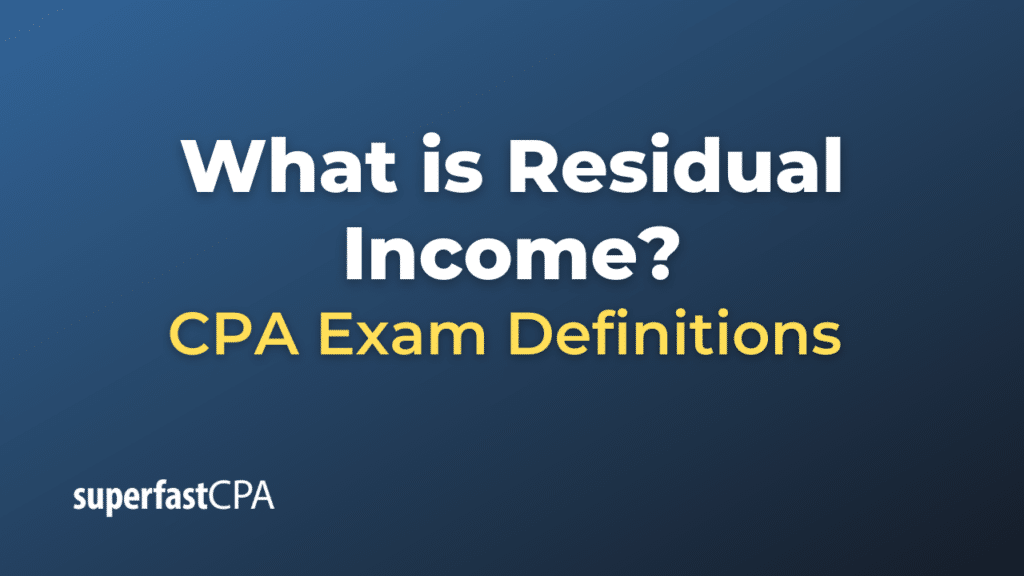Residual Income
Residual income, in financial terms, has two primary contexts:
- Corporate Finance: In the corporate finance context, residual income (RI) refers to the net income an investment or business project earns above the minimum required return. It’s essentially the profit left after all capital costs (costs of investment, interest on financing) are considered. The formula for this type of residual income is:
RI = NetIncome − (EquityCapital x CostofEquity)
Where:- NetIncome is the total profit from the project or investment.
- equityCapital represents the amount of owners’ or shareholders’ equity invested in the project or firm.
- CostofEquity is the return required by equity investors or shareholders.
- Personal Finance: In personal finance, residual income refers to the amount of money left over after all necessary expenses and bills have been paid for a period, typically a month. It can be viewed as disposable income that can be used for savings, investments, or discretionary spending. In the context of loan applications, particularly mortgages, residual income can be used to gauge an applicant’s ability to handle more debt. Lenders might have benchmarks for residual income based on household size and location.
Example of Residual Income
Let’s provide an example in the context of both corporate and personal finance.
1. Corporate Finance Context:
Scenario: Imagine a company, “TechGlow,” which invests in a new project to develop an innovative gadget. Here are some key figures:
- Net Income from the project: $200,000 per year
- Equity Capital invested in the project: $1,500,000
- Cost of Equity (required return on equity): 8%
Calculating Residual Income:
RI = NetIncome − (EquityCapital x CostofEquity)
RI = $200,000 – ($1,500,000 x 0.08)
RI = $200,000 – $120,000
RI = $80,000
So, after covering the minimum required return on the invested equity capital, TechGlow has a residual income of $80,000 from the project.
2. Personal Finance Context:
Scenario: Meet Sarah. She’s a software developer with the following monthly finances:
- Monthly Income: $6,000
- Rent: $1,200
- Utilities (electricity, water, internet): $250
- Groceries: $400
- Transportation (gas, car maintenance): $150
- Loan Payments: $450
- Entertainment and Miscellaneous Expenses: $350
Calculating Residual Income:
First, sum up all her monthly expenses:
TotalExpenses = Rent + Utilities + Groceries + Transportation + LoanPayments + Entertainment
Total Expenses = $1,200 + $250 + $400 + $150 + $450 + $350
Total Expenses = $2,800
Now, subtract her expenses from her income to get the residual income:
ResidualIncome = MonthlyIncome − TotalExpenses
Residual Income = $6,000 – $2,800
Residual Income = $3,200
Sarah’s residual income is $3,200, which means she has this amount left over after paying all her essential expenses for the month.
These examples illustrate how residual income can be calculated and interpreted in both corporate and personal finance contexts.












